
Question: Was Josh Chamberlain really given mutineers like in the movie?
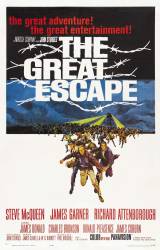
Question: How come Hilts could not answer the German at the end of the movie when he said he could speak German to Colonel von Luger?
Answer: .And, just to add to the previous answer: even if he could speak conversational German, he would likely do so with a very strong American accent (as he does when he speaks the few words to the Commandant earlier), so the guard would have picked up on that right away, anyway.
Answer: He could have only known a small amount of German, enough to answer a question or two, but not enough to carry on a full conversation. Also, the German seemed to be wanting to have a full conversation with him. He was on the run and didn't have time to talk. He was most likely being a smart ass saying he knew German.
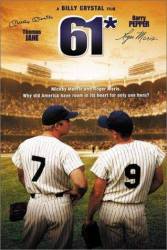
Question: Mickey Mantle was on a home run streak that year and then got hurt. I am just curious to know, if Mickey Mantle had been the one to break the record, if there would be such an uproar over it.
Answer: Actually Maris was MVP the previous year, 1960.
Answer: Probably not. Mantle was loved by the fans and the sports writers, plus he was a good layer. Maris never really had a good season before, or after, so a lot of people did not think he deserved to be the one to break the record.
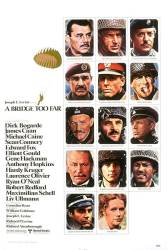
Question: In the scene where the American 82nd Airborne is storming the river bank at Nijmegen, there is a brief shot of one of the German defenders, who looks quite startingly like a puberescent boy. Anyone know whether this assumption is correct, and if so, what's the background to this story?
Chosen answer: The Germans did use some Hitler youth movement in the war.
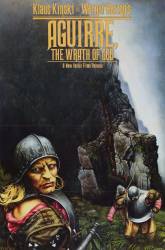
Question: Why did Klaus Kinski try to kill one of the extras with a sword prop?
Answer: Kinski suffered from mental illness for most of his life. He was given to bouts of unprovoked outbursts and violence. He was eventually diagnosed with psychopathy (antisocial personality disorder). On movie sets, he was notorious for being physically and verbally abusive to the crew, who generally hated him. The sword incident was just one of many. On the production of this film, director Werner Herzog carried a gun on him in the event he had to protect himself or others. It was only because Herzog was a long-time friend that he hired Kinski for acting jobs. Kinski was flat-out crazy. He was eventually unable to get any work as an actor.
Agreed. I forget what film set it was but Kinski also once fired a rifle at a bunch of crew members and blew a guy's finger off. He was unstable.
It was also Aguirre, The Wrath Of God. Kinski was irritated by the noises from a hut where cast and crew were playing cards and, out of anger, repeatedly fired a Winchester rifle into it. One of the bullets took the tip of an unknown extra's finger off.
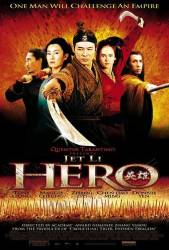
Question: Was this film based on an true story, or was it fiction based on the true warring states as the backdrop?
Answer: It was a fiction based on the true historical period as backdrop, althought it sorted of resembled a true event that the deserter general of Qin gave his head to an assassin as a pass to get close to the Emperor, who was then still a king of a state among the warring states.
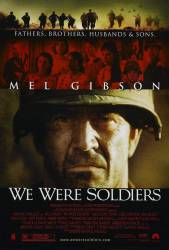
Question: Would a sergeant-major participate in a mission?
Answer: This one did, everything ascribed to him in the film was true.
CSM Plumley's records show that he served in 320th Glider Field Artillery Battalion as a scout. The 320th participated in two glider assaults in the European Theater. Also, Plumley never served in Korea during the Korean War, so he couldn't have participated in one of the two combat jumps of that conflict. His record book indicates he was at Ft. Campbell, Kentucky (1951 to early 1953) when he received orders to Germany. Finally, he never claimed to have made any combat jumps in his career.
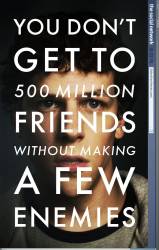
Question: When Eduardo discovers the dilution of his percentage, he asks Mark if he did it because of the "article about the chicken", which accused Eduardo of forced animal cannibalism. Sean Parker hears this and says, "What's he talking about?" and then says "Seriously, what's the chicken?" Is this implying he was the one who gave the chicken story to Mark's lawyer so he could use it in the previous scene where he mentions it?
Answer: No, earlier when it came up in the lawyers office, Eduardo thought it came from Mark, but the lawyer stepped in and said they were able to find it themselves. Sean really had no idea what he was talking about, but didn't use it against him.
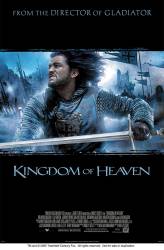
Question: What is the hospitaler inserting into his mouth as he squats near the creek?
Answer: I thought it was cotton with oil of clove for a bad tooth.
Answer: The answer is a "miswak," a dental hygiene twig used, and still used, for cleaning the teeth.

Question: Why wasn't it acceptable for Marie to breastfeed her daughter?
Answer: It was typical for royalty and the aristocracy to remain extremely "hands off" regarding child rearing. Nannies, wet nurses, and tutors tended to all their offsprings' needs, and parents usually spent relatively little time with their children. It would be considered extremely odd for a queen to engage in something so personal and common as breastfeeding her child.
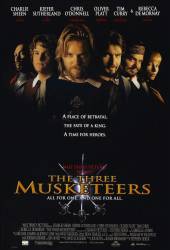
Question: Is D'Artangne's gold sword the same prop sword which Ignio Montoya used in The Princess Bride?
Answer: No. Inigo's sword has a jeweled hilt. D'Artagnan's is not jeweled.
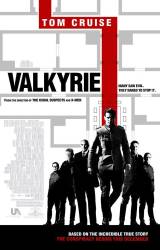
Question: Why did all of the officers and high-ranking officials put out their cigarettes when Hitler's plane landed at the airfield?
Answer: Hitler was fanatically anti-tobacco: https://www.theatlantic.com/health/archive/2014/07/the-nazis-forgotten-anti-smoking-campaign/373766/.
Answer: They are supposed to stand at attention when he arrives and salute when he walks past them. It is considered bad form to salute the Führer (or any leader) with a cigarette in your mouth or hand.
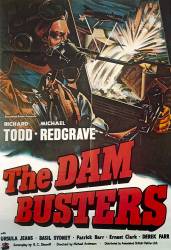
Question: Isn't Gibson (Richard Todd) shown wearing a VC ribbon on his dress tunic? I thought he was awarded this for the raid itself.
Answer: I think Gibson is shown wearing the ribbons (and rosettes) of the Distinguished Service Order and Bar, and Distinguished Flying Cross. He was awarded these medals before the Dam Busters raid. In black and white, the ribbon for the VC with its miniature cross can look similar to the DSO with a rosette for a second award.
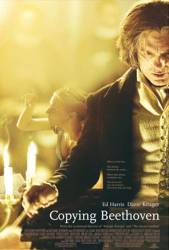
Question: Why was Beethoven depicted as an obnoxious, rude and unlikable man in this movie? I read that in the real life he wasn't such a bad person.
Answer: It's a fictional version of Beethoven. Artistic license is used to enhance the drama by embellishing Beethoven's personality, likely to show his anger, frustration, and despondency over becoming deaf. Like many similar biographical movies, it is not meant to be an accurate portrait.
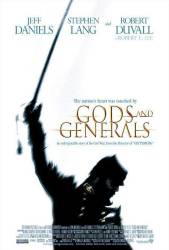
Question: Where was the civil war battle fought nearest Madison, Wisconsin?
Answer: The nearest one I can find listed was at Kirksville in northern Missouri.
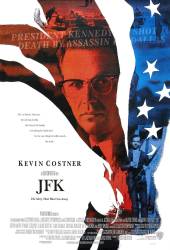
Question: Why does Gary Oldman speak with a Russian accent when Lee Harvey Oswald was from New Orleans?
Answer: Lee Harvey Oswald was very sympathetic to the communist ideal, and lived in Russia for a while. He probably adopted the accent as an affectation towards that end.
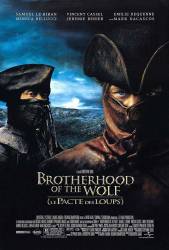
Question: Is the weapon used in the final battle inspired by Ivy's weapon used in the video game Soul Caliber (or just coincidence)? And how in the world is it supposed to work?
Answer: Actually the origins of the Bone Sword used by Francios date back much earlier than Miss Ivy. It is rumored to be a mytholigical weapon used by the damned in some ancient African beliefs. Crafted from the bones of the dead and the chains of Hell itself. Ivy's weapon and so many others like it are a representation of a magical weapon that springs forth to lash out at an opponent. It can't be crafted. Believe me I've tried.
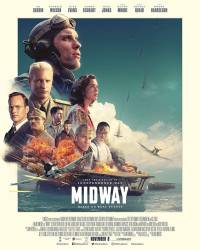
Question: There are scenes in the movie where Dick Best's gunner, Murray, is facing forward in their aircraft, particularly when the aircraft is on the Enterprise. The only time he appears to be facing the rear of the aircraft is when they are under attack. How is that possible?
Answer: Good eye! The gunner's seat in the Douglas SBD was on a swivel. The military rating was actually radioman/gunner, and when facing forward, he had access to a suite of radio equipment and a set of basic flight controls! He could actually fly the SBD from the rear seat, although this is never reported to have been necessary in combat.
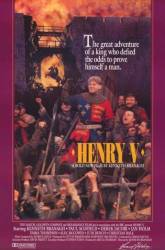
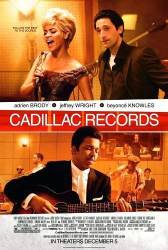
Answer: Yes. After the 2nd Maine Infantry was disbanded, there were 120 men with 1-year of service left. They mutinied because they said they only agreed to fight under the 2nd Maine flag and the Army disagreed. So they were marched under guard to the 20th Maine, led by Chamberlain. Chamberlain was able to convince most of them to fight, even though he was ordered to shoot any who did not fight.
Bishop73
Is there a reason why a few of them refused to fight?
Yes. The same reason why they mutinied.